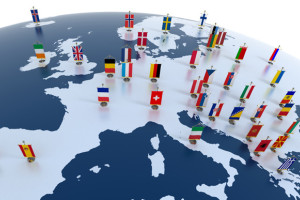Ecommerce companies warn EU about ‘active end users’

Eight leading European ecommerce platforms, including Booking.com, Zalando and Bol.com, urge the European Union to reconsider the definition of ‘active end users’ of their services. They write this in a letter to the EU with regard to the proposed Digital Markets Act (DMA), which aims to regulate big tech companies.
The letter was sent only a few days ago by eight European ecommerce businesses. The senders include travel giant Booking.com, leading marketplaces Zalando and Bol.com, Allegro, eMag and Vinted, as well as meal delivery services Delivery Hero and Wolt.
New rules for biggest tech companies
The companies wrote to the EU’s ministers currently working on the Digital Markets Act (DMA), a new set of rules aiming to regulate digital gatekeepers like Google and Facebook. The new rules are supposed to create a level playing field and ensure fair competition. For example, the DMA will include rules against platforms that favor their own products over others.
Visitors are not the same as end users, write the eight ecommerce businesses.
An integral part of the ongoing negotiations is how to identify the biggest online players that fall under the DMA. This will be based on turnover as well as the number of ‘active end users’. However, visitors are not the same as end users, write the eight ecommerce businesses.
Visitors versus customers
“Using website or app ‘visitors’ as the basis for counting the number of ‘active end users’ dramatically distorts the relevant user numbers”, the ecommerce companies write in their letter. They fear that “more companies than initially intended” will fall under the DMA regulations as a result.
Not all visitors will place an order, the businesses say, and the remuneration that platforms receive for each purchase generates the largest share of their revenue.
Global ecommerce converts 2 to 3 percent
The warning from European online businesses is not unreasonable, as the average ecommerce conversion rate lies somewhere between 2 and 3 percent globally. This means that out of 100 visitors, only around 3 place an order.
Bol.com’s conversion rate is up to 8 percent for next day delivery.
This number is probably higher for the biggest online brands, like the letter’s senders. Additionally, clothing stores typically have a lower conversion rate while marketplaces with regular customers convert much higher. The letter’s cosigner Bol.com once revealed in a whitepaper that their conversion rate is up to 8 percent for next day delivery, while delivery up to three days converts around 4 percent.
DMA to become law in 2023
Zalando, Booking.com and the other companies urge the EU to consider a transaction-based approach for identifying the biggest online players in ecommerce. “For other online intermediaries, “visitors” or “logged-in users” may better capture their remuneration model,” the letter reads. The EU is currently still working on the DMA, which is planned to become law in 2023.

Comments